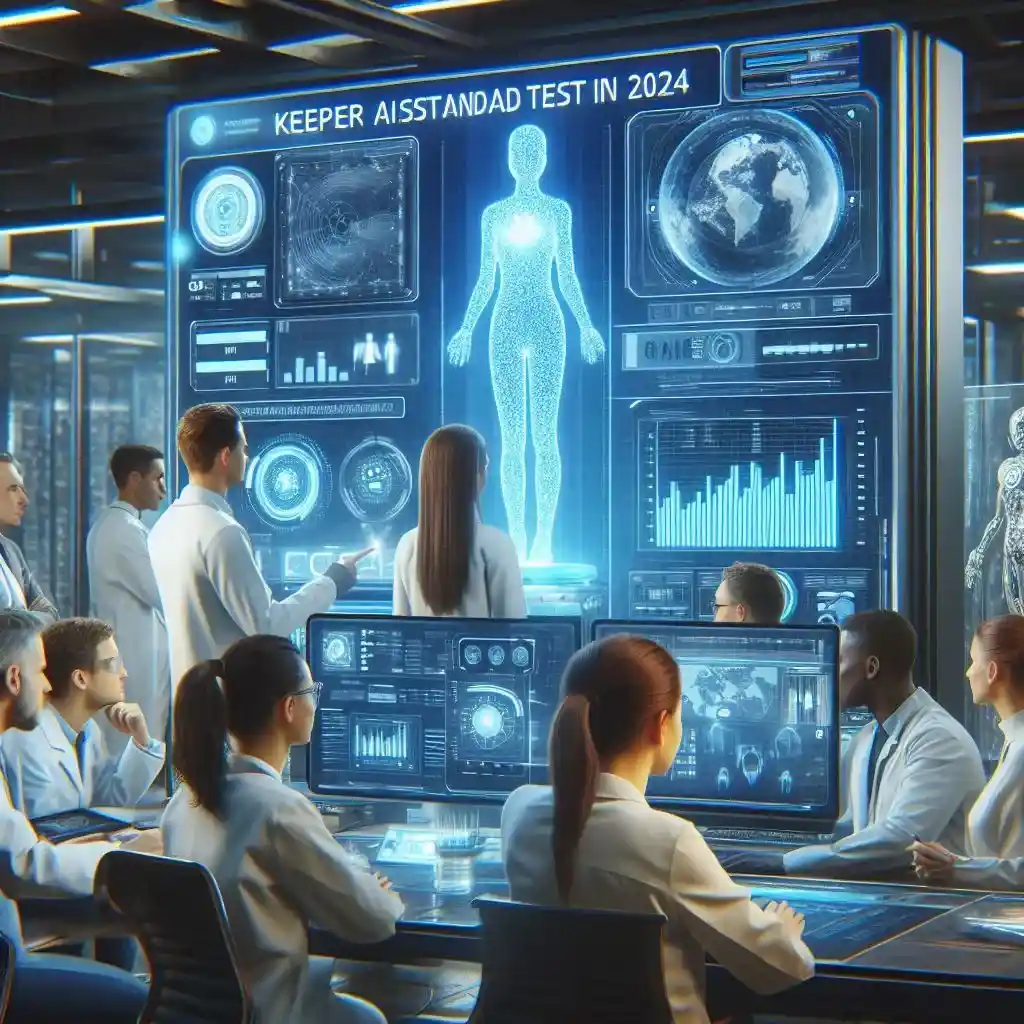Keeper AI Standards Test isn’t simply another company to compete with other AI assessment companies—it is the way to open a new chapter in the story of AI. Wouldn’t it be great if there was a framework that could recast the procedure of evaluating and confidence given to AI systems? This gives the promise of improving the reliability of AI, assuring ethical standards, and recording record-breakneck standards. Interesting to see how the innovative method for evaluating concepts is causing ripples. Well, to understand what’s special about the Keeper AI Standards Test and why it triggered so much interest in the technology circles, keep reading!
The Keeper AI Standards Test: A Fresh Perspective on AI Evaluation
What is the Keeper AI Standards Test?
Keeper AI Standards Test is an advanced platform that is designed to exceptionally draw focus on the strict testing of artificial intelligence. It takes the assessment procedure a notch higher to guarantee that the AI technologies currently em workouts are not only precise but also moral and efficient. This test checks the accuracy of data, the orientation of an algorithm, and also the measures that should be taken to gain suitable results from an AI system.
Presently, it is only a matter of time to see an AI at every corner and hence, the Keeper AI Standards Test applies for the multiple strategies that were adopted to ensure high standards of AI in terms of performance and ethicality. This means that it can be relied on in terms of decision making and further to this the decision is the best, unbiased, and understandable.
Innovative Components of the Keeper AI Standards Test
1. Enhanced Data Integrity
- Advanced-Data Accuracy: The Keeper AI Standards Test employs cutting-edge methods to validate data accuracy in real time. Thus, with the help of such techniques as anomaly detection and real-time data validation, the AI system will get the most accurate data to work with.
- Data Privacy and Security: Recent updates to the test framework emphasize robust data privacy measures. Such methods as differential privacy and secure multiparty computation are adopted to ensure privacy while at the same time ensuring that the integrity of the information is preserved.
2. Algorithmic Precision and Adaptability
- Algorithmic Fairness: Modern evaluations now include fairness audits to ensure algorithms do not perpetuate biases. Lessons like Fairness-aware machine learning & bias correction are part of testing and are essential in developing a fair AI.
- Adaptability and Generalization: The test assesses an AI system’s ability to adapt to new scenarios and generalize beyond its training data. This makes it possible for AI models to be able to understand new and different elements that may be inputted into the system or conditions that may be prevailing at any given time.
3. Advanced Performance Metrics
- Real-Time Performance Monitoring: The Keeper AI Standards Test now includes real-time monitoring to evaluate how AI systems perform under dynamic conditions. This involves evaluating the variables including responsivity and robustness when exposed to uncontrollable climates.
- Resource Efficiency: Sustainability is a key focus, with the test measuring an AI system’s energy consumption and computational efficiency. This assists in determining the end impact of AI technologies on the environment.
Current Challenges in AI Testing
Ethical Implications: The Keeper AI Standards Test deals with emerging issues on AI ethicality, particularly; the ability of an AI system to explain decisions and control the power of an AI system. It helps to make sure that there is fairness in these AI systems when working and the rights of users are protected.
Bias and Fairness: Even about bias and fairness aspects, the framework is periodically refined to sustain effective performance. That is why fairness-aware techniques help in avoiding discriminative opportunities and are inclusive.
Scalability and Flexibility: When new applications of AI come into the picture, the test gives an idea of how the system can extend and develop to accommodate those applications. These are from the evaluation of results in various operational environments and user expectations.
Exciting Innovations in AI Testing
- Federated Learning: This emerging technology allows for collaborative model training across decentralized data sources without sharing raw data. FL provides Private and more secure yet better performance as compared to other methods.
- Explainable AI (XAI): Therefore, with the advent of XAI there is pressure on AI systems to offer explainable reasons for making some decisions. The Keeper AI Standards Test now includes XAI metrics to evaluate the interpretability of AI models.
- AutoML and Adaptive Testing: Automated Machine Learning (AutoML) and adaptive testing are transforming AI evaluations. Such improvements help in transforming the testing process while making them more effective, elastic to different circumstances, and more extensive.
Practical Implementation and Case Studies
Finance: Within the financial industry the Keeper AI Standards Test has played a significant role in improving the work of detection of frauds. In other cases, it has assisted institutions increase the precision and/or decreasing fallacious alerts hence strengthening their fraud-fighting techniques.
Healthcare: The test has also been used in the development of diagnostic tools thus guaranteeing the safety of health care through accurate results from AI systems. To resolve the trust and efficiency issue the emphasis needs to be placed on data privacy and the fairness of the algorithm.
Implementation Strategies:
- Define Objectives: Clearly outline the goals and requirements for the AI system to tailor the testing framework effectively.
- Select Advanced Tools: Utilize cutting-edge tools and methodologies, such as federated learning and XAI, to enhance the testing process.
- Conduct Iterative Testing: Perform iterative testing to refine and improve AI systems based on test results and insights.
- Integrate Feedback: Use feedback from testing to address identified issues and optimize system performance.
Global Standards and Regional Variations
- International Frameworks: The Keeper AI Standards Test aligns with global guidelines like GDPR and the AI Act, ensuring compliance with international standards for data protection and ethical use.
- Regional Adaptations: The framework also considers regional variations in regulations, adapting to local requirements while maintaining a consistent global standard. This ensures that AI systems can be effectively deployed across different regions.
Future Directions and Trends
- Predictive Analytics: In the future, new developments in predictive analytic shall boost the testing of AI and its functions of forecasting and problem-solving.
- Enhanced Automation: Increased automation in AI testing will streamline evaluation processes and improve efficiency.
- Global Policy Evolution: As AI technology evolves, global policies and standards will adapt to address emerging challenges and opportunities.
Conclusion
The Keeper AI Standards Test is not only a set of recommendations – it is the key to the next paradigm of AI assessment. It makes a shift of focus from superficial AI features like ‘big data’ towards the data’s credibility and algorithms’ ethicality as well as introduces a new generation of AI performance indicators. In the future when there is a new development in technology and new issues come on the scene, the Keeper AI Standards Test will follow them to deliver trustworthy and effective AI. Embrace the future of AI with confidence, knowing that the Keeper AI Standards Test is leading the way!



